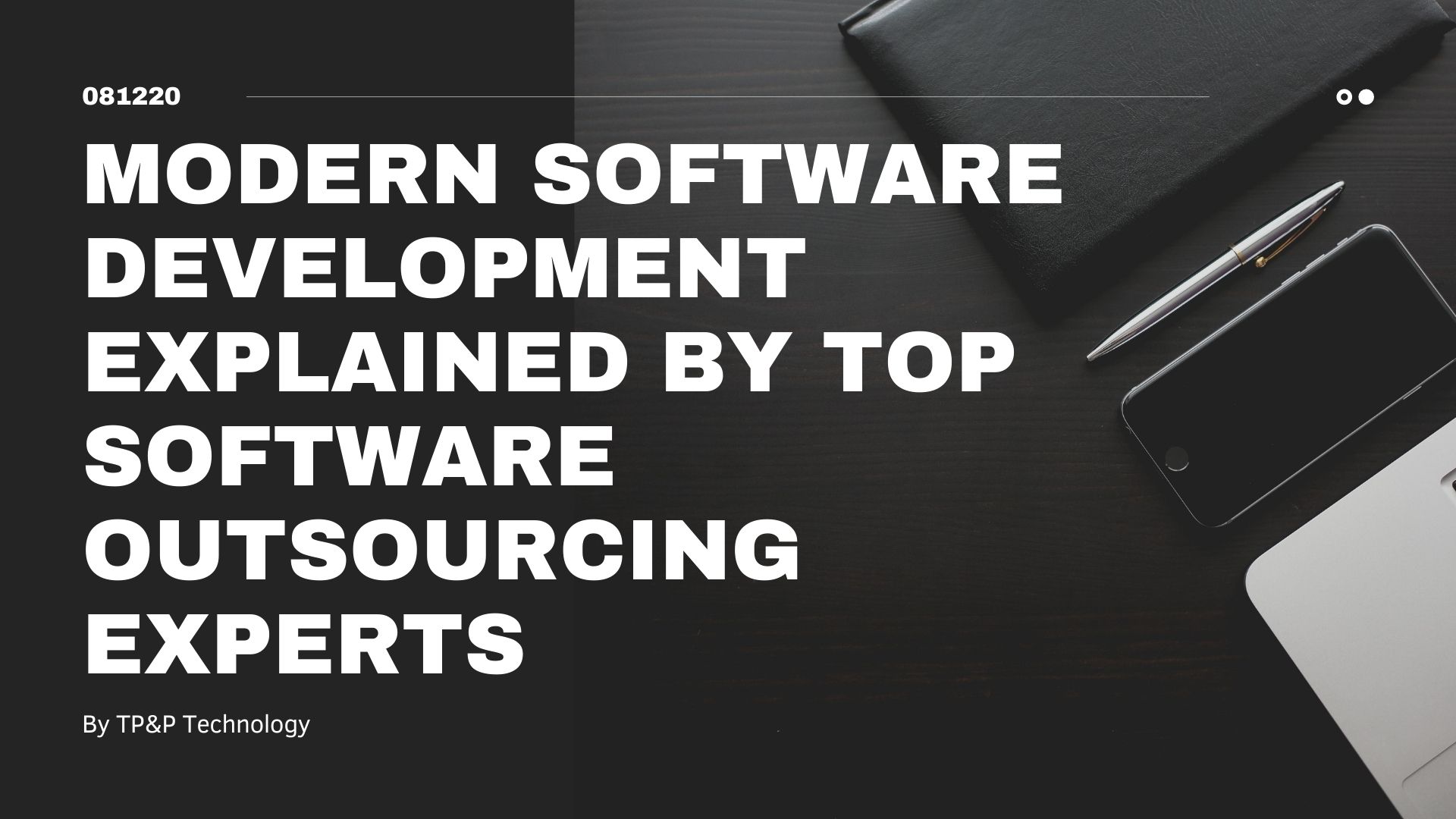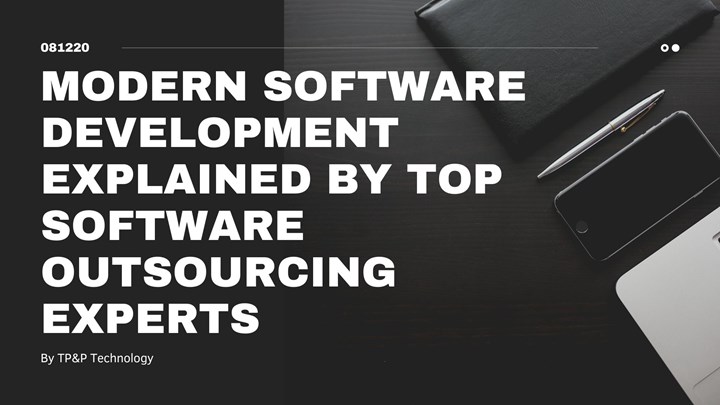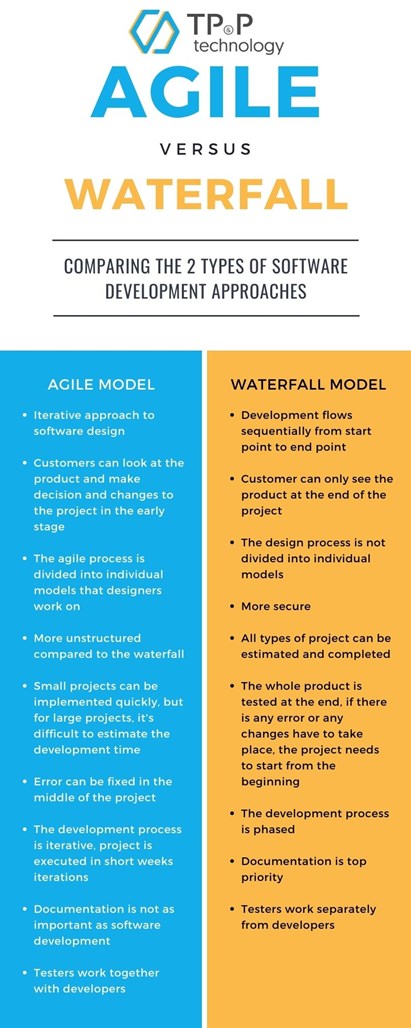
Modern Agile Software Development Explained By Top Software Outsourcing Experts
Any enterprises that want to reach out to a third-party software development firm should know about this modern software development methodology. In this blog post, we'd like to discuss the Agile method from a view of a top Vietnam software development provider.
If you’re looking for a way to develop any software that has the potential to give your company a competitive advantage, you’ve probably come across the term Agile. It is one of the most modern methods that is widely used by many software development firms. But do you understand it correctly?
This is the basic guideline for Agile Software Development.
What is Agile Methodology?
The Agile software development methodology is today’s most straightforward and most effective process of turning a business’s vision into real-life software solutions. Agile methodology is a term describing a software development approach that integrates planning, researching and learning, making improvements, team collaboration, evolutionary development, and fast delivery. It is widely used due to its flexible responses to change.

The agile methodology focuses on four different core values:
- Individual and team interaction over processes and tools.
- Working software over comprehensive documentation.
- Customer collaboration should be prioritized over contract negotiation.
- Responding to change accordingly to a plan.
Agile software development revolves around the idea of iterative development, where requirements and solutions are developed via the collaboration of self-organizing cross-functional teams. The ultimate value of agile development is its ability to enable the team to deliver value faster, with superb quality and ability to respond to change, and predictability. Scrum and Kanban are the two most widely used agile methods.
Agile process
There are many different Agile methods present in agile testing, some of which are: Scrum, Crystal Methodologies, DSDM (Dynamic Software Development Method), Feature-driven Development (FDD), Lean software development, Extreme Programming (XP).
What is Scrum by the way?
Scrum is a subset of Agile. Scrum and other agile processes’ differences lie in specific concepts and practices, divided into three categories: roles, artifacts, and timeframes. Scrum is commonly used to manage complex product and software development through iterative and incremental operations.
Compared to the classic waterfall model, Scrum significantly improves productivity and shortens the time to benefit. The Scrum process allows organizations to smoothly adapt to the rapidly changing needs and produce products that meet evolving business goals. A flexible Scrum process helps organizations increase the deliverables’ quality, better deal with changes, expect the changes, provide better evaluation while spending less time creating them, and better control project progress and state.
Agile model Vs. Waterfall model
You might have heard of how Agile models can benefit the software development process and how everyone strongly recommends it against the Waterfall model; both models have their advantages and disadvantages.
The agile model and the Waterfall model are two different software development process approaches. Although their approaches are different, these two methods are useful, depending on the project’s requirements and types.
Let’s have a look at this comparison between the Agile Model and the Waterfall model!

What is the benefit of Agile?
Customer
By applying the agile methodology to the development process, customers find the vendor is more responsive to development requests. Compared to the longer cycle favored by the traditional waterfall processes, high-value features are developed and delivered faster in a shorter cycle.
Vendors
Vendors can benefit from the agile method by focusing development efforts on high-value features and reduce time-to-market relative to waterfall processes due to decreased overhead and increased efficiency. Customer satisfaction will then be improved, leading to better customer retention and positive customer references.
Development Teams
Agile benefits the development team by reducing non-productive work, such as writing specifications or other artifacts that no one uses, and giving them more time to do the job they enjoy. Development team members also know their work is valued because requirements are defined and chosen to maximize customers’ value.
Project Managers
Planning and tracking are more comfortable and more concrete, making the life of project managers more breathable. Project managers can have a clearer understanding of project status at any time due to the focus on task-level tracking, using composite graphs to show daily progress and Daily Scrum meetings. This awareness is the key to project monitoring and fast issues catching and addressing.
Product Managers
Product managers, who usually fill the product owner’s role, are responsible for satisfying customers by ensuring that the development work meets customer needs. Scrum makes this alignment easier by providing opportunities to re-prioritize work to ensure the maximum value.
PMOs and C-level Executives
Because the agile approach provides high visibility, PMOs and C-level Executives can use this visibility to plan more effectively and adjust the strategy based on the information rather than speculation.
How can Agile help your business grow and save money?
- Agile is simple, and sometimes simple things such as unit tests, sprint planning, and defining an MVP is enough
- Eliminates waste and increases business value
- Ensures quality throughout
- Strengthens commitment
- Improves Team Morale
- Minimizes uncertainty
- Flexible
Let’s build your software with Agile!
And TP&P Technology can help you with your software development project. We have teams of software developers, managers, and testers to code your dreams! We will take care of everything you need.
Contact us now to know more about our digital transformation consulting and software development services.



